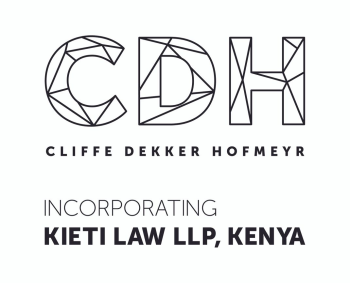Introduction Proposed transaction Decision Comment Introduction
On October 19 2016 the South African Revenue Service (SARS) issued a binding private ruling (BPR 253) regarding the donations-related tax consequences of a proposed transaction which would introduce a black economic empowerment (BEE) shareholder into a group of companies in order to:
- benefit all of the entities within the group in respect of their BEE scorecard ratings; and
- increase the profitability of the applicant (X) – a South African resident company.
The other parties to the proposed transaction were:
- the seller (Y) – a South African resident trust that holds all of X's shares;
- the company (A) – a South African resident non-profit company; and
- the acquirer (B) – a South African resident company whose shares are wholly owned by A.
SARS had to decide whether the disposal of Y's shares in X at a discounted price and the subsequent acquisition of the shares by Y in B at a nominal subscription price – in order to introduce the acquiring company into Y's existing group structure for BEE purposes – would constitute a 'donation' under the Income Tax Act (58/1962).
B possessed no assets or liabilities. Y and B proposed to enter into the following transaction as an indivisible transaction.
While B would still be a wholly owned subsidiary of A, Y would dispose of 26% of the issued equity shares in X to B for a purchase price which is the lower of:
- the market value of the shares at the date of disposal less a 10% discount; or
- a capital sum of 40% of X's future dividends that would be received by or accrue to B over the eight years following the disposal.
Further, Y's outstanding claim for the capital amount of the purchase price would be payable in interest free instalments over the eight years. In addition, immediately after Y's disposal of 26% of the issued equity shares held in X to B as part of the same indivisible transaction, Y would subscribe for 49% of the issued equity shares in B at a nominal subscription price.
Having considered the proposed transaction and the wording of the relevant sections of the act, SARS ruled that:
- neither the disposal by Y of 26% of X's issued equity shares to B at a discounted price (as contemplated above) nor the subsequent acquisition by Y of 49% of the equity shares in B at a nominal subscription price would constitute a 'donation' as defined in Section 55(1) of the act; and
- neither of these transactions will be deemed to be a donation as envisaged in Section 58(1), and Section 57 of the act will not apply to the proposed transaction.
SARS stated that the ruling is subject to the additional condition and assumption that Y and B are independent parties dealing at arm's length.
Section 55 of the act defines a 'donation' as any gratuitous disposal of property, including any gratuitous waiver or renunciation of a right. In Welch's Estate v the C:SARS (2005 (4) SA 173), the Supreme Court of Appeal held that the legislature did not eliminate from the statutory definition of a donation the common-law requirement that the disposition be motivated by pure liberality or disinterested benevolence and not by self-interest or the expectation of a quid pro quo of some kind. As the disposal of X's equity shares to B aims to improve the group's BEE scorecard ratings, among other things, the donation is not motivated by pure liberality or disinterested benevolence and is not done for self-interest or with the expectation of a quid pro quo. It is likely for this reason that SARS ruled that the transactions would not constitute donations as defined in the act.
For further information on this topic please contact Heinrich Louw, Mark Morgan or Louis Botha at Cliffe Dekker Hofmeyr by telephone (+27 115 621 000) or email ([email protected], [email protected] or [email protected]). The Cliffe Dekker Hofmeyr website can be accessed at www.cliffedekkerhofmeyr.com.
This article was first published by the International Law Office, a premium online legal update service for major companies and law firms worldwide. Register for a free subscription.





